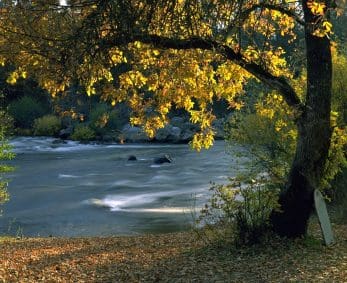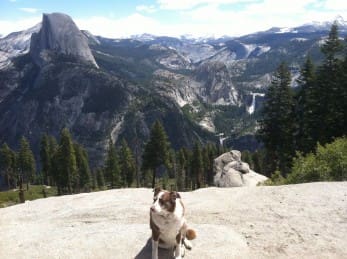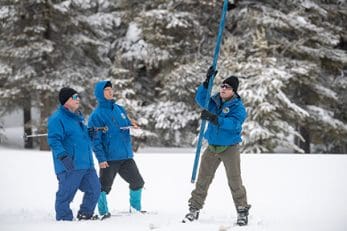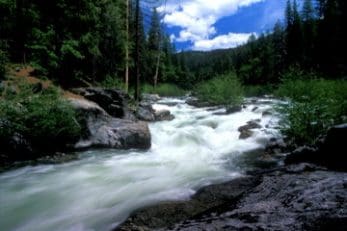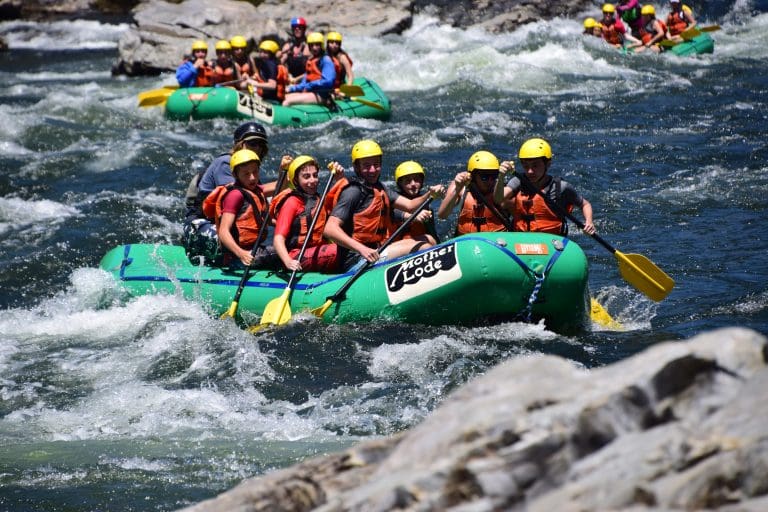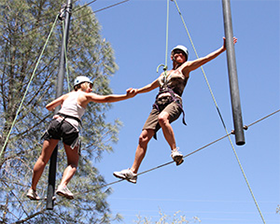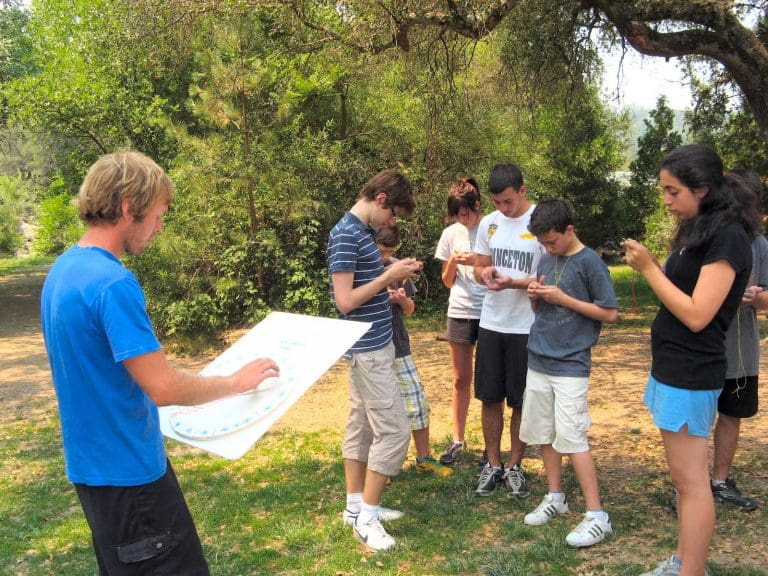Our sedentary culture seems to nurse a love of thick-walled boxes that makes us leery of impermanent housing. Who hasn’t sneered at the man who lives in a van down by the river? But river guides will attest to the freedom and joy of transitioning from a stuffy winter box every spring into an airy, riverside bedroom. Ditching moldy roofs for translucent tarps stretched over wooden frames, and linoleum and carpet for leaf-strewn platforms, we set up house by stringing a few thrift store sheets up for privacy and hanging up a pair of board shorts. The more domestic of us arrange a few potted plants in front of the sheet-door and call it good.
This simplicity, self-sufficiency, and connection to the natural world embodies the spirit of the yurt, a lovely example of which has now arrived at Mother Lode. With no corners for the wind to catch, the earliest yurts were built to endure the wind-raw steppes of Central Asia, and yet their basic elements – circular lattice walls, cone shaped roof, and rafters that meet in a central ring – could be assembled in thirty minutes and taken down just as quickly. Two or three camels can comfortably carry a medium sized yurt and all of its household goods, just as one beat-up Subaru Legacy can carry a river guide’s wordly possessions with a kayak strapped to the top. (All this info on yurts, and more besides, can be found in the book Yurts: Living in the Round, by Becky Kemery)
Guides don’t get to live in yurts for the summer at Mother Lode –yet. But guests and guides alike can enjoy the spacious, 20-foot diameter yurt as a space to imagine a lighter, less cumbersome existence, and ponder the following quote: “If in our lifetime we suppress nomads, we shall have done by human harshness what natural harshness could not do. To abolish nomads because they have other skills, know other things, hold other aspirations, and live by other customs than ours – in short, because they are different – is as unwise as it is unworthy… There is a place for nomads in the world, often enough a place we cannot use without them. We must not steal it from them, for if we do, we reduce the richness of human life – we rob ourselves.”
Neville Dyson-Hudson

